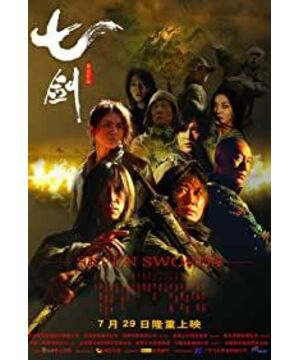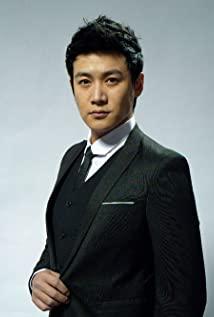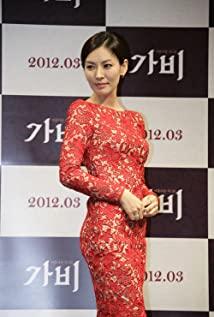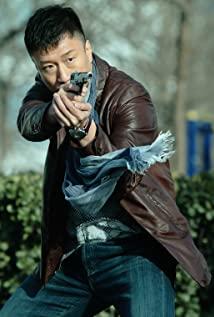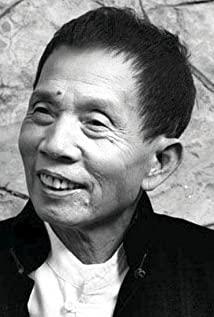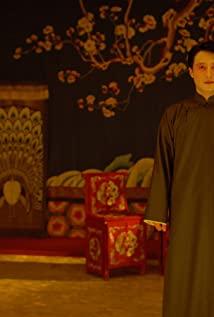watching a movie when he watched it. After watching his eyes closed, the thoughts in his head are not just movies. The director is the god of the movie, and he controls the fate of all people and things in the movie. I really want to touch the heart of this God, but I am not very clear. These meanings flowed like clouds, but they could not be grasped in the palm of the hand. I tried to look at it in this way, such as the substitution of one character by one character. Where do you come from, where will you go, what do you plan to do, and why do you plan like this?
In order to watch "Seven Swords", I did my homework. I read some written materials, which are concentrated on Xu’s conversations with newspaper reporters. He said a lot, and most of them forgot. Only two words are very clear: growth.
This concept is very important. It can be understood that each character does his duty according to his own destiny, and each actor performs well in what position he performs. It can also be understood that this movie attempts to answer that, as a large network of group destiny, each individual is changing, growing, from language to behavior, and thus the story is developing.
For martial arts, there is really nothing new under the sun. The martial arts with clothes fluttering like snow and dust-free, and the martial arts with loess waves on the ground are the two sides of the palms and the backs of the hands. This is the first growth-the director's growth. He gradually gave up the way a teenager dreamed and changed to the way an adult dreamed. There is a big difference, but there is no difference between good and bad. The stunts themselves are technical tools, but those who play flying and explode are mostly children, full of game spirit, and the most important is level and comparison. Whoever has the highest martial arts content is the boss. For example, when Xu Ke was afraid of Mount Shu, I saw news gossip saying that he worked tirelessly to calculate the number of wing feather swords on Xuan Tianzong’s back. He did not carry any very specific concepts. It was a relatively imaginary obsession. . "Seven Swords" is an adult Tsui Hark movie. Each weapon pursues metaphysical things, such as morality, belief and character. This difference shows the temperament of the movie.
The ambition of "Seven Swords" is particularly obvious, the background is not fully developed, but the beginning is very big. The imperial court wanted to eliminate the rebellious forces and bring out the current opposition between the power holders of the previous dynasty. The small incision went in, and the clues of the big story emerged. Wuzhuang was originally an ordinary village, but it was led by people from the Tiandihui, and the meaning became obvious. The movie does not intend to only talk about the rivers and lakes, but about the whole world, the whole earth.
In a world full of wind and fire, he is very clear about his position and background. The old and the new dynasties alternate. People in the previous dynasties are powerful and either submit (in fact, they are still easy to be annihilated by the court to be at ease). He is a marginal force. He does not submit to the court and is not subject to official entitlements. He has his own independent small kingdom, but he maintains the independence of this small kingdom and his own power, relying on helping the court to do things. After the orthodox dynasty matures, after a hundred years of encirclement and suppression, this power will gradually decline, becoming a folk legend and the dynasty's credit for suppression of bandits. His career belongs to the road he chose to survive. Buyers and sellers get high profits, and these profits are necessary to maintain the existence of personal power. If it's just robbing ordinary people's food and grass, they are just ordinary thieves. But when he dealt with the royal princes, his resourcefulness was not bad, and the castle was occupied. Such characters often hide ambitions, but without proper spring breeze, they would not sprout. If there is a good wind, it will take advantage of the situation and it will go against it. Or another deep-seated intention is to sit down and be recruited.
His dialogue is very interesting. Whether it is complaining: "Bandits...even women are robbing..." or "spoiling food." What stands out is his sense of identity. He doesn't think of himself as a super bandit. He still regards himself as a positive person, a posthumous expression of a court official who makes moral evaluations of others. Now that you have a political background, you must know that the dualistic thinking of these characters is deeply ingrained. Coming out of the court, discussing life on the rivers and lakes was nothing but a misunderstanding of others. What he did and did was something that ordinary thoughts could pinpoint. Feng Huo Liancheng looked at his men and muttered to himself: "What a good boy before, how come you have become a pack of wolves?" He is also growing up, and he has to get used to the transformation from one memory identity to another real identity. The movie didn't give him a complete opportunity, and as a villain, he was wiped out. In fact, this kind of opportunity is not only a rare opportunity for him, who has already been out of the bandit category, but the members of the Seven Swords who are said to be dying in the sequel will also depend on the good fortune of each person. Because identity is a home for a person to settle down. To be a wolf is to abandon the rules of a sheep. There are so many heroes in the world.
His all sorts of inexplicable details and the inevitable destiny made me think too much about martial arts in him.
Qijian is the team. But no single swordsman can afford all the chivalry. Since the background of the novel is relatively well dispersed, it is not bad to borrow it. If an all-powerful knight shoots out, it will become a god-making movement that has been rampant in the past. Not only was that boring, it also couldn't satisfy Tsui Hark's needs for "growth" and "surpass".
There is no end to the grievances of the arena. Individual insights are meaningless to a large group of people and to the huge social and political affairs of the earth. The clean body of a hermit has nothing to do with the world. In addition to fictional opiates, martial arts movies usually end here. Because chivalry and martial arts are nothing but tools, not the fundamental way to solve problems.
Therefore, this movie is firmly on the road of non-wuxia. They are looking for a solution to imperial power. I don't know where is the boundary between rivers and lakes and temples.
But before the end of the story, they still faithfully perform their chivalrous duties. Beside a spiritual mentor and organizer, start fulfilling it. Fu Qingzhu's spiritual leadership is a very weak link in the movie. Basically, it depends on the fragmentary details to guess, but it does not matter, the edited movie is really too short, and all the characters have this problem. At first he rescued Wu Yuanying, I thought he was a deep hidden knight. As a result, his identity is a former official of the Criminal Ministry. Dynasties can be changed, but the imperial rule is the central idea. Although he was not too pedantic in the struggle against the wind and fire, his gentle and honest scholarly style has never changed. He is the only person in it who does not need to grow up. His creed and final propositions prove that he represents the gate between the old and the new. The so-called new rivers and lakes may be the more realistic world. If safeguarding the imperial power can solve the problem, are these chivalrous things deviating from the traditional concept of Jianghu?
The most worth looking forward to, the Seven Swords under Tianshan I wanted to see most, but I didn't see it. It's a pity that Zhibang and Wu Yuanying have omitted too many swords in the middle. But I later understood that the Seven Swords going to Tianshan was not the point, because the Seven Swords were just to find the right person. But the people holding the sword are changing. The key point is the changes that these people have brought down to the Tianshan Mountains and integrated into the development of the story.
The identity and personality of Yang Yuancong and Chu Zhaonan are slowly explained later. The seven people did not stand on the same starting line. It grows back and forth. Chu Zhaonan's love with a Korean woman is both situational and close to the same origin. They are all slaves, they are all victims who have been hurt, but one who has force can liberate others as well as oneself. One was liberated purely because of love. For this woman, it's the same as who is a slave. Chu Zhaonan's sturdyness is full of rebellious wildness. Yang Yuancong's status as a descendant of Tiandihui and his well-educated performance should make him a spiritual leader. Once he has self-awareness and belief. That depends on the later story.
Liu Yufang's transformation is most in my heart, because it is the simplest and most logical. A teacher who was pure and blood-free at the beginning led the children to gain an understanding of the world. He never killed anyone, and after he killed someone, he gradually settled down, saying not to underestimate her and her children. I think of "Unbeaten in the East". For the sake of grievances and grievances, the next generation will continue to walk the same way, but for every living person among them, it is self-growth, and no one can replace their own experience. Destroyed family members in the hometown were slaughtered, after being hunted down, and after being rescued, all were traces of endless rivers and lakes that hit the soul. Men, women and children, no one is an outsider. Gratitude and grievances are the arena. As for the source of the turmoil, it is completely different from the past.
After reading the story of "Seven Swords", I feel that the grasp of visual interest is not bad in terms of medium and upper levels. But the theme stays condensed. This kind of taste is even more, like waiting, watching how such a group of people go down such a river and lake. Compared with the past, it broke my old impression of martial arts for many years. Compared with the interpretation of the mentally handicapped theme like the hero (I still feel that "Hero" has made a mentally handicapped interpretation on a very important and serious historical issue.), Tsui Hark's exploration appears to be "dynamic." The director himself is still growing, the film is a series, and everything needs to be perfected later and time.
Those chivalrous feelings that are purely dreaming are thinner, and even more, are the fading of martial arts. Just martial arts is not enough to carry what the movie wants to express, what Xu Har wants to express. The political elements, social elements and the growth of human martial arts feelings inside can feel the heavy weight. I do see some humanism. But I had to read them all before I dared to make an evaluative judgment. This is how I judge whether there is humanism. The film can explain to everyone, can roughly see the individual's growth in the grand destiny, and can think about why, what caused this person to do this or that, that is, Humanities too.
In the end, I actually feel that the movie itself is filled with the helplessness of a director. The film narrative is in contradiction with his theme. To allow his theme to be narrated clearly, a slow pace is needed. The sequel is a particularly big test of commercial operations. It is said that the box office is very good now. I hope the audience will continue to support it until he tells the story. Finish.
The world of martial arts movies in the past is a simplification of the present world and an exaggeration of interest. And now the pursuit of the quality of reality, the pursuit of a "master", is also
the pursuit of the audiences who live by watching movies like this . Breaking the old down and creating the new is a typical manifestation of growth. The director, the film and the audience are all experiencing growth. Those exciting rivers and lakes have gone, where are the new rivers and lakes? This kind of subtle dislocation and complicated viewing psychology, I feel like a kind of pain.
From an unbelievably entertaining and romantic martial arts movie to a movie that walks on the theme, the change of a director is also an incision in our society. The meaning of change that can be brought to society is also worth thinking about. As a film critic, when you see a movie as a movie, applaud it when you watch it, or scold it when it’s not good; when to think more about things outside of the film and think about the director’s mind, maybe it’s another discipline.
View more about Seven Swords reviews


